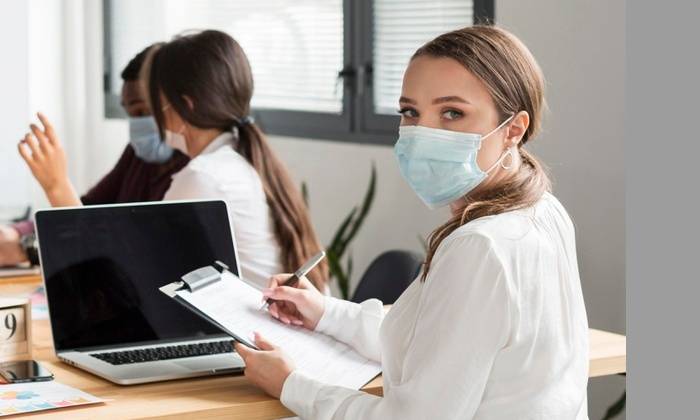Only seven out of 24 countries have reopened classrooms with Covid-safe measures, leaving millions unable to access education
Only one in three countries in west and central Africa have reopened their schools, leaving children at risk of child marriage, early pregnancy and recruitment by local armed groups, Unicef has warned.
Six months after schools across the region closed under lockdown measures, just seven out of 24 countries – Benin, Burkina Faso, Cabo Verde, Chad, the Republic of the Congo, Equatorial Guinea and Sierra Leone – have been able to put measures in place to make classrooms safe for reopening, including hygiene stations and social distancing.
“We don’t have time to waste. With every day that goes by, millions of children and young people unable to safely access learning opportunities are missing out on their right to an education and putting their future at risk,” said Unicef regional director Marie-Pierre Poirier.
Ensuring even the most basic measures to protect against Covid-19 in schools has proven difficult. In Guinea-Bissau, only 12% of schools have access to soap and water for handwashing. The figure is 15% in Niger, 22% in Senegal and 25% in Burkina Faso, according to Unicef. Social distancing is also nearly impossible in many classrooms, with overcrowded classes and an overall lack of trained teachers to support children’s learning, the UN agency added.
Even before the pandemic began about 41 million children and adolescents were out of school in west and central Africa, accounting for a third of the world’s out-of-school children, Unicef said. The longer schools remain closed, the more likely it is that children will simply drop out altogether: when schools reopened in Sierra Leone after the 2014 Ebola outbreak, re-enrolment rates for girls decreased, while pregnancy rates shot up.
Although many countries tried to keep some form of education going, with courses on the radio, television and internet, almost half of all schoolchildren across the region were unable to access this remote learning, the agency found.
At EducAid Rolal secondary school in Port Loko, Sierra Leone, just two-thirds of the 335 students have returned to school, principal Kabiru Mansaray told the Guardian. Face masks, soap and handwashing buckets have been provided by the government, and students are slowly learning how to keep their distance from one another. But despite radio lessons and learning materials being provided to students, many had no formal learning routine during lockdown and as a result are now struggling to catch up with the curriculum, said Mansaray.
“We are aware that one of our girls got pregnant [during lockdown] but we hope there are not too many [more cases] because we really did try to pre-empt that by supporting girls with education on how to keep themselves safe.
“We are doing all we can to support our students. We contacted parents [during lockdown] on a regular basis through phone calls and SMS to know how students were doing and to keep them informed about preventive measures and their role in helping continue with their learning at home.
“We lost teaching time during Ebola and now we have lost months of schooling to Covid. What if it keeps happening? We are working to make sure our students will know in future how to keep themselves on a learning routine even when they are away from school.”
Unicef called on affected governments to prioritise education in their Covid-19 recovery plans and to put wash stations and social distancing measures are in place in all schools.




